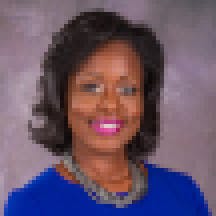Table of Contents
This week, the Aspen Institute announced its 2022 Ascend fellows, a cohort of 22 people hailing from a vary of disciplines together with drugs, investigation, entrepreneurship, govt and coverage, and nonprofit management and advocacy.
Their respective fields could change extensively, but what unites this individual group—on the 10-year anniversary considering that the fellowship was very first launched—is their dedication to transforming early childhood schooling. The fellowship has normally been about investing in leaders from different sectors that effect youngsters, households and communities, but this is the very first yr that the fellowship is centered on our nation’s youngest kids and their families. And moving forward, it will preserve that target for each individual other 12 months of the fellowship.
“This 12 months, we’re truly building on what we have learned and have done before,” says Anne Mosle, founder and government director of Ascend and vice president of the Aspen Institute, in an job interview. “We’re tightening our target and shining an incredibly dazzling gentle on family members and little ones at their earliest years—really the prenatal to age 3 room.”
The fellows, who incorporate Black, Indigenous and Latinx leaders of shade, deliver abundant lived experiences and experience, Mosle provides. They will satisfy in person four instances about the future 18 months to share ideas and understand from one another—beginning up coming week, with an preliminary collecting in Aspen, Colorado.
EdSurge spoke with a handful of the 2022 Ascend fellows to find out extra about their backgrounds, how they came to be associated in the field of early childhood, and what challenges they perspective as most urgent for this cohort to tackle. Satisfy 4 of them underneath.
Blythe Keeler Robinson

Blythe Keeler Robinson remembers her individual early decades vividly. She recalls the early learning program she attended—Westmore Working day Nursery—and can tick off the names of the instructors who cared for her: Ms. Donna, Ms. Brenda, Ms. Lucille. She can describe where by she ate, what the nap area seemed like, the varieties of actions she participated in (portray, planting, drawing).
Even in advance of Robinson decided to perform in early childhood instruction, back again when she was researching authorities and politics and, afterwards, attending legislation college, she realized she’d had a defining early studying knowledge. She characteristics her really like for learning and looking at, and her natural curiosity, to her time at Westmore.
“It totally formed me,” states Robinson, who is now president and CEO of Sheltering Arms Early Education and learning and Family Facilities, which serves 2,300 little ones at 13 centers throughout metro Atlanta.
Robinson counts Sheltering Arms between the likes of Spelman College, Morehouse Faculty and Coca Cola—all storied institutions in Atlanta. Sheltering Arms was founded in 1888, creating it a person of Georgia’s oldest nonprofits.
But like so lots of early childhood vendors in the past pair of many years, Sheltering Arms has struggled to recruit and retain team, when their competitors—not college districts, but relatively Goal and Starbucks, she says—are in a position to fork out considerably extra.
“We’re in a disaster all-around academics,” Robinson claims of the early childhood sector. “A whole lot of men and women discuss about the problem of choosing. It is not an issue. It is a crisis.”
Immediately after shouldering through the worst of the pandemic, Robinson says she is eager to sign up for the other Ascend fellows in Aspen up coming week, to stage back and mirror on her own perform and the work of the business she prospects. She hopes to study from and absorb thoughts from her peers that she can convey back again to Sheltering Arms, not only to increase the bar on good quality, but also to solve elemental issues this kind of as staffing and funding.
“This is a pivotal minute for early childhood training,” Robinson notes. “We have to make investments. We have to fork out interest. We will have to imagine in a different way about what the part of early childhood is in our modern society and the fabric of our nation.”
Mary Alice Cohen

With hundreds of millions of bucks in stimulus funding to spend, bipartisan assist and motion, a new section devoted to the field, and statewide common preschool slated to start in 2023, Colorado is getting a person of the foremost states for early childhood education and learning in the place.
Mary Alice Cohen, who describes these situations as marking a “truly transformative period” in Colorado, is section of the crew that will manual the state by way of this vital time. Cohen is the deputy govt director of Colorado’s new Section of Early Childhood (so new, in simple fact, that Cohen steps its existence in times. It was formally launched on July 1.)
“The eyesight of the new division is that all little ones are healthy, valued and flourishing in our condition,” Cohen clarifies, incorporating that the division is also focused on the effectively-staying of early childhood specialists.
Cohen and her colleagues at the section have the expressed intention of making Colorado the best area in the country to elevate babies. But there is considerably operate to do to get there.
“Our workforce took these a hit,” she says.
The condition is employing a amount of procedures to try to retain present early childhood educators even though also setting up a pipeline of new ones.
The Colorado Office of Early Childhood is investing $271 million of federal stimulus money to stabilize baby treatment plan operators and the early childhood workforce. As of June, additional than 3,500 programs had been awarded grants, with $166 million toward stabilization and $41 million to the workforce, wired specifically into providers’ accounts, Cohen notes.
Some vendors are presenting new added benefits to existing workforce, this sort of as psychological health and fitness counseling. Many others are applying retention bonuses.
For these who are looking at coming into the discipline, Colorado is offering incentives this kind of as free specialist progress to get folks experienced and up to pace, as very well as $5,000 bonuses right after they come to be certified.
The truth, Cohen claims, is that 400,000 small children aged 5 and underneath live in Colorado, and nevertheless there are only 153,000 slots at accredited kid care courses. “So we’re accomplishing every thing we can to establish our workforce, boost licensing potential, and assist family members, mate and neighbor care,” she suggests. “You have to go where little ones are staying cared for.”
As she satisfies and learns from other Ascend fellows about the next calendar year-and-a-50 %, Cohen thinks Colorado is uniquely positioned—thanks to a governor and condition legislators who support early childhood investments—to make “rapid system adjustments,” especially about diversity, fairness and inclusion.
Tonja Rucker

Tonja Rucker’s entry into early childhood education was as a result of some get the job done she did during graduate school with Head Commence, the federally funded software for little ones from lower-income households.
Her time at Head Start off underscored how essential it is to give little ones a “great start out in life,” and shortly right after that expertise, she says, “I knew I wanted to be in this area.”
Rucker taught in the classroom for a pair of several years, then joined the town of Baltimore as its Head Begin coordinator, launching her occupation at the intersection of early childhood and neighborhood governing administration.
For the past 15 many years, Rucker has worked at the Countrywide League of Towns (NLC), a nationwide advocacy business with more than 19,000 associates ranging from significant towns these kinds of as New York to little cities and villages across the state. Currently, she is the director for early childhood achievements in the NLC’s Institute for Youth Education and Families, exactly where she has worked at the local community level to create applications, insurance policies and methods in the fascination of children and people.
“It’s opened my eyes to the worth of neighborhood govt,” Rucker suggests. “I imagine at the federal degree, so considerably can be done—and at the state stage, way too. But the neighborhood stage is where by the rubber meets the road. If we’re on the lookout for alternatives and innovations, people factors come about locally.”
Rucker has listened to from a number of town officials that the issue of the early childhood workforce is top of brain as they feel about recovering from the pandemic. “It’s crucial in phrases of what’s taking place with kid treatment,” she suggests, alluding to how a deficiency of child care alternatives for U.S. staff members is a critical business problem.
Echoing the workforce woes expressed by other Ascend fellows, Rucker asks, “What is this tumble going to glance like? When the significant box shop a mile away is having to pay much more than you can get at the kid treatment center, how can you keep onto or retain employees?”
Early childhood educators are fatigued and burned out from the onslaught of modifications given that early 2020. But so are the elected officers Rucker will work with. And so is she.
“I am fatigued,” she admits. “The working day to working day is just quick and furious.”
But she claims this fellowship “couldn’t arrive at a much better time.”
“Over the study course of 18 months, I get to commit some time with excellent thinkers who are in a similar area,” she suggests, “and then master matters I can bring back again to NLC.”
Deana All around Him

What if a child’s toothache prevented her from demonstrating up to university all set to discover?
It’s the kind of problem Deana All over Him considers in her do the job. Maybe the toothache gets to be a challenge on Saturday, but the baby just can’t get to a health treatment company until eventually she returns to school on Monday. How a great deal classroom time is shed? And extra importantly, how does this wellness challenge influence the child’s potential to sit in course and listen and absorb?
All-around Him, who is a citizen of the Cherokee Nation with expertise as a higher college science trainer on the Pine Ridge Indian Reservation in South Dakota and as a researcher with a target on maternal and boy or girl health, is fascinated in the inbound links involving health, very well-becoming and schooling, notably for American Indian and Alaska Indigenous communities.
She explores those people connections in her roles as a senior study scientist at the nonprofit Kid Traits, wherever she is expanding the organization’s get the job done related to Indigenous young children and family members as a member of the leadership staff for the Tribal Early Childhood Study Middle, primarily based in Colorado and funded by the federal Administration for Young children and People and as a co-investigator for a Countrywide Institutes of Wellness-funded investigate plan, examining the back links in between prenatal exposure to substances this kind of as alcoholic beverages and tobacco and birth outcomes.
Now, she will get to request all those inquiries as an Ascend fellow, much too (and certainly, she acknowledges there was now a good deal on her plate).
“I’m passionate about the operate I do,” About Him claims. “It’s tricky to attract traces in between function and household lifetime at times. I expend all working day imagining about perform factors, but in my residence lifestyle I’m seeking to put into action them. I have a younger little one, school-aged. It motivates me to keep on the operate. I want him to have entry to factors I did not have in my early several years. So I find time. It is great when there’s overlap.”
Around Him says the most urgent problem in her do the job is “creating opportunities for children to access culture [and] language,” which she states are vital to supporting them build a sturdy identification.
“Our languages are rapidly turning out to be in threat of becoming dropped,” About Him states. “With Covid, we’ve misplaced so numerous of our elders who are libraries of language and cultural information and facts. So we need our young kids to have sturdy identities and know who they are throughout the life course—and the early understanding setting is the location to do that.”


More Stories
Join the Online Education Wave: Virtual Preschool Teacher Jobs Open!
Truth For Teachers – Why you need a “to-don’t” list
SkillsUSA Devils Lake brings home 16 medals